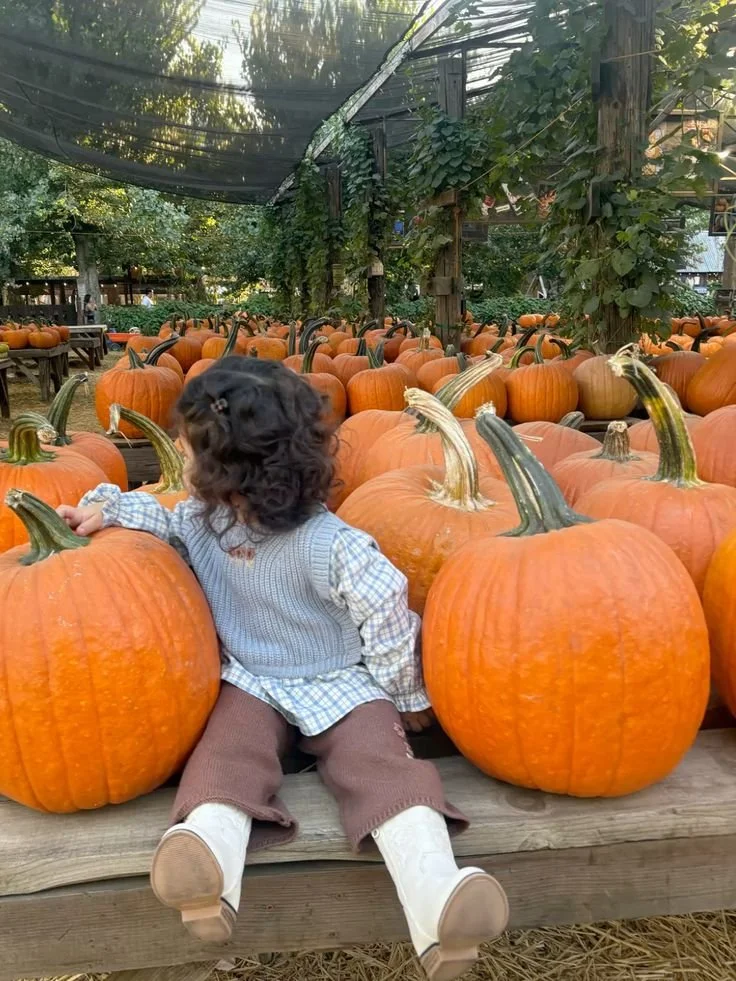Halloween for Toddlers - Spooky Language and Feeding Strategies
Halloween is a wonderful opportunity to work on speech and language skills with your little ones! Here are some fun, developmentally-appropriate activities you can try at home this season.
Speech and Language Activities
“Boo!” Games
Peek-a-boo has nothing on the “boo” from ghosts! Grab a little play ghost and pop out saying “boo!” This simple game supports object permanence and cause-and-effect learning.
Tips for success:
Pause for anticipation before saying “boo!”
Model the game multiple times
If your child enjoys the game but isn’t ready to imitate “boo” yet, have them select or sign “more” on their communication device
Practicing “Open”
“Open” is one of those power words we use constantly! Halloween books with doors and flaps are perfect for practicing this word.
Try this routine:
Knock on the door: “knock knock knock”
Pretend to listen by cupping your hand around your ear
Say “open” right before opening the door
You can also model the sign for “open” or use AAC icons
The more you model this, the more likely your child will imitate it!
Facial Features with Pumpkins
Carving pumpkins is a classic Halloween tradition and a perfect time to target facial features! While actual carving isn’t toddler-friendly, pumpkin stickers work wonderfully.
Why this works:
It’s easy to elongate vowels: “noooose,” “eeeeaarrr,” “eyeeeeess”
Offer choices: Hold up two stickers and ask, “eyes or nose?”
Let your child point or request with words
Scary Faces and Expressions
Language learning isn’t just about words! Non-verbal communication matters too.
Fun ways to practice:
Use a surprised face and throw your hands up when something pops out
Make “grrrr” sounds while scrunching your face and holding your hands like claws
Create silly monster faces together—these naturally encourage mouth movement and tongue exercises
Make it playful! Language learning should be fun and something you can easily integrate into everyday life
Building Advocacy Skills
The Importance of “No” and “Stop”
Children are still learning to advocate for themselves. Teaching “no” and “stop” gives them the tools to communicate their boundaries and needs.
Remember: We teach politeness after we establish the foundation of basic language. If your child doesn’t say “thank you” after getting candy, it doesn’t mean they’re ungrateful—they’re still learning!
Feeding Therapy Considerations
Mindful Language (Candy)
Be thoughtful about how you talk about candy during Halloween. Using black-and-white labels like “healthy” or “fatty” can increase pressure around food.
Instead:
Use neutral, descriptive words: “crunchy texture” or “bright orange pumpkin”
Avoid demonizing foods or using them as coercion (”if you eat dinner, then you can have a popsicle”)
High-pressure meal times can lead to anxiety
Exploring New Foods
If you have a picky eater, Halloween is a great opportunity for food exploration!
Strategies that help:
Offer a variety of sweets, including “healthier” options like bananas, candy apples, banana bread, or zucchini bread
Place new foods alongside preferred foods to reduce anxiety
If your child loves candy, use this as an opportunity to introduce a new food on their plate next to their favorite treat
Cooking and Baking Together
Fall brings wonderful baking opportunities—think pumpkin seeds, pumpkin bread, and more! Involving your little one in the cooking process can help them become more comfortable exploring new foods.
Sensory exploration can help them feel safe to try new options
You can embed language directed activities, like simple commands and modeling phrases
Preparing meals can help them learn more about the food before putting it in their mouth. Eating is one of the strongest sensory experiences!
Final Considerations
Cultural Sensitivity: Not everyone celebrates Halloween. Be mindful of the materials you use and honor diverse cultural practices.
Emotional Awareness: This can be a heavy time in our society. Be observant of others’ emotions. While fun celebrations can bring joy, they may also be difficult for communities facing challenges.


